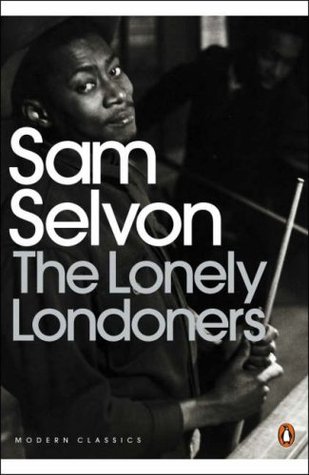What do you think?
Rate this book


Moses, Big City, Fünf-nach-zwölf und die anderen setzen große Hoffnungen in ihr neues Leben im »Zentrum der Welt«, so nennen sie das London der Nachkriegszeit. Sie sind aus der Karibik hierhergekommen, jetzt staunen sie über die Dampfwolken vor ihren Mündern. Und wenn der Wochenlohn wieder nicht reicht, jagen sie eben die Tauben auf dem Dach. Kapitulation? Niemals! Stattdessen beginnen die Überlebenskünstler, sich neu zu erfinden – und ihre neue Heimat gleich mit.
Samuel Selvons Ton zwischen kreolischem Straßenslang und balladesker Suada setzt sich sofort ins Ohr. Bedingungslos aufrichtig erzählt Selvon von den ersten Einwanderern Englands, die das Land für immer verändert haben – sein Denken, seine Sprache, sein Selbstverständnis.
Die literarische Entdeckung!
174 pages, Kindle Edition
First published January 1, 1956


So, cool as a lord, the old Galahad walking out to the road, with plastic raincoat hanging on the arm, and the eyes not missing one sharp craft* that pass, bowing his head in a polite ‘Good evening’ and not giving a blast if they answer or not. This is London, this is life oh lord, to walk like a king with money in your pocket, not a worry in the world.
Is one of those summer evenings, when it look like night would never come, a magnificent evening, a powerful evening, rent finish paying, rations in the cupboard, twenty pounds in the bank, and a nice piece of skin* waiting under the big clock in Piccadilly Tube Station. The sky blue, sun shining, the girls ain’t have on no coats to hide the legs.
‘Mummy, look at that black man!’ A little child, holding on to the mother hand, look up at Sir Galahad.
‘You mustn’t say that, dear!’ The mother chide the child.
But Galahad skin like rubber at this stage, he bend down and pat the child on the cheek, and the child cower and shrink and begin to cry.
‘What a sweet child!’ Galahad say, putting on the old English accent, ‘What’s your name?’
But the child mother uneasy as they stand up there on the pavement with so many white people around: if they was alone she might have talked a little, and ask Galahad what part of the world he come from, but instead she pull the child along and she look at Galahad and give a sickly sort of smile, and the old Galahad, knowing how it is, smile back and walk on.
The riot made me pick up this 1956 novel by British Caribbean author Samuel Selvon (1923-1994) who is said to be The Father of Black Writing in Britain. The story is about the life of working-class black immigrants called West Indians who migrated to post-WWII London following the enactment of the British Nationality Act of 1948. The said act established the status of CUKC (Citizen of the United Kingdom and Colonies) allowing the people from the British colonies (Australia, Jamaica, Trinidad, etc) to come to UK without needing a visa. One of the reasons that the act was implemented was that many of the MPs of the day thought that few citizens of the Empire would want to reside in the UK. The Act was mostly repealed in 1983.
Prime Minister David Cameron blames the riots that shook Britain over the past 10 days on a "slow-motion moral collapse ... in parts of our country," he said Monday. Cameron listed problems including "Irresponsibility. Selfishness. Behaving as if your choices have no consequences. Children without fathers. Schools without discipline. Reward without effort. Crime without punishment. Rights without responsibilities. Communities without control," in a speech in his constituency in Oxfordshire.

And Galahad watch the colour of his hand, and talk to it, saying, 'Colour, is you that causing all this, you know. Why the hell you can't be blue, or red or green, if you can't be white? (...)'